HS-LS2-8
Evaluate the evidence for the role of group behavior on individual and species' chances to survive and reproduce.
-
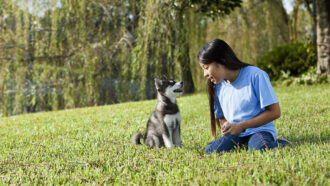 Animals
AnimalsAnalyze This: Puppies naturally mimic human actions
Unlike cats, whose ancestors hunted alone, dogs evolved from a species that hunted in packs. Being social might explain why pups copy humans.
-
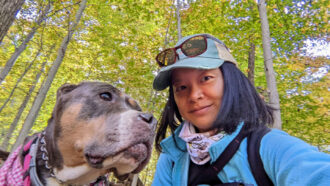 Animals
AnimalsThis biologist uses microwave radiation to save endangered species
Pei-Chih Lee works to preserve genetic material that can help researchers learn more about endangered animals, such as pandas and clouded leopards.
-
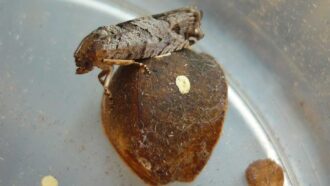 Animals
AnimalsRandom hops always bring jumping beans to shade — eventually
It’s not fast, but jumping beans use randomness to maximize their chances of getting out of the sun’s heat.
-
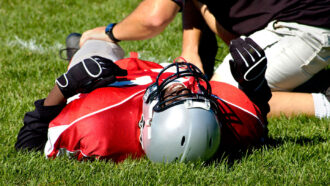 Health & Medicine
Health & MedicineNew brain scans may show if a concussion has not yet healed
Concussions change certain brain waves, and delta waves may be the best signs of when teens can return to competitive sports.
-
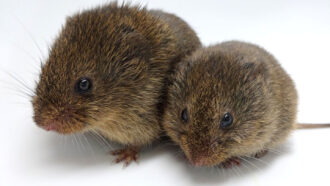 Animals
AnimalsPrairie voles can couple up even without the ‘love hormone’
Scientists thought the chemical oxytocin was required to make prairie voles mate. They were wrong.
-
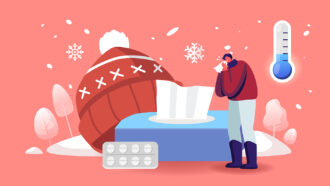 Health & Medicine
Health & MedicineExplainer: Why it’s easier to get sick in the winter
Low humidity helps viruses survive, and cold weather blunts some of the body’s immune responses — making colds and other viral infections more likely.
-
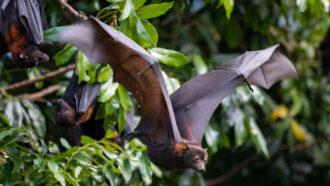 Environment
EnvironmentProtecting forests may help head off future pandemics
Hungry bats are more likely to shed harmful viruses to people or livestock when they spread out to hunt food. Conserving forests may limit this risk.
-
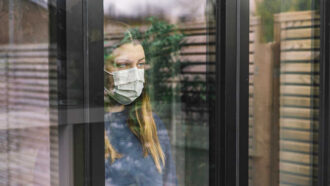 Brain
BrainThe pandemic prematurely aged teens’ brains
A small study showed certain structural changes that appeared three to four years early. Normally, premature aging of the brain is not a good sign.
By Freda Kreier -
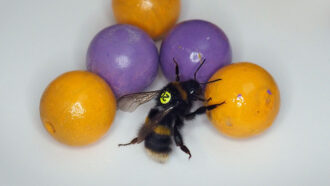 Animals
AnimalsBumblebees go out of their way to play
Young bumblebees roll wooden balls and go out of their way to do so. This suggests they play like other animals do.
-
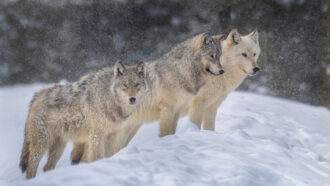 Animals
AnimalsThis parasite makes wolves more likely to become leaders
Gray wolves infected with Toxoplasma gondii make riskier decisions. This makes them more likely to become pack leaders or strike out on their own.
By Jake Buehler -
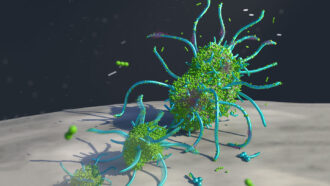 Microbes
MicrobesMouth-crawling superbugs cause severe cavities in kids
In kids with severe tooth decay, fungi and bacteria team up to create superorganisms that can crawl across teeth.
-
 Archaeology
ArchaeologyNeandertals were a lot like our human ancestors
From toolmaking to healthcare, new research finds that Neandertals shared many cultural and social similarities with our human ancestors.